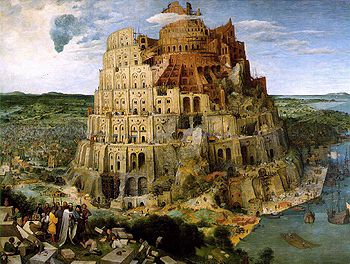Is Android becoming a Tower of Babel?


But evidence is mounting that Google's Android project is becoming just that, a failed attempt to unify.
Is it?
Some of the blame is being placed on Google. The Open Handset Alliance is controlled by Google, whose employees are micro-managing the code base, it's alleged.
Some of the blame is also being placed on manufacturers, with HTC, Samsung and Sony-Ericsson all producing custom features they don't contribute back, it is said.
Vision Mobile says Android's claim to be open source is a fraud, and that its success is really driven by Qualcomm's desire to sell chips, or the desire of network operators and manufacturers to avoid Apple's tighter controls.
All of which means what, exactly?
To me it means that Android is, indeed, open source, only in a BSD sense rather than a GPL sense. If I may be permitted another religious analogy it's a Protestant church, not a Catholic one.
Open source does not mean complete compatibility. Under a BSD-like license such as the Apache license preferred by Google, it doesn't mean all code must be contributed back, or that those who use a project's code can't add proprietary extensions.
Many companies create proprietary, closed development tools off the Eclipse project, for instance, but no one would say Eclipse is not open source.
To be open source means there is a central store of code that is being built upon and shared. That's what Android is offering.
It's a mistake to confuse forking with rejection of a system's premise. Critics seem to think of Android the way we might think of Ubuntu or Red Hat, as a single Linux distro. In fact, Android seems to be evolving more like Linux itself, with Google controlling the kernel and a vast ecosystem of companies seeking innovation on top of it.
This is a natural tension. You want to differentiate, you want to have something unique. Then at some point you see compatibility as a goal, and you want to get your stuff into the kernel.
This second wave, the move back toward the center, is the true breath of life in an open source project. It's the inhalation, it must be carefully managed for the project to succeed.
Google's ability or willingness to engage in this inhalation successfully will be on display in two weeks, at Google I/O. Will manufacturers bring their ideas back to the center, and will Google incorporate things it didn't create into the code base? This has yet to be seen. This is the test of the next several months.
I wouldn't call Android a failed open source project until it has had a chance to catch its breath.